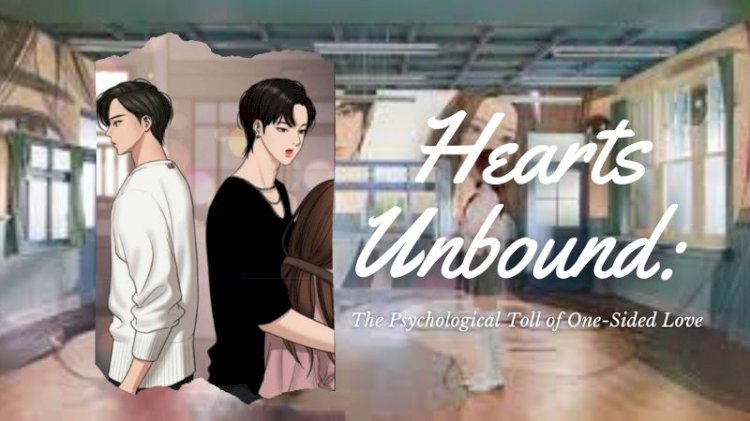Hearts Unbound: The Psychological Toll of One-Sided Love
Unrequited love, a painful experience familiar to many, can have a significant impact on mental health. The rollercoaster of emotions, including anxiety, depression, and low self-esteem, can be overwhelming. Coping strategies like acceptance, seeking support, and self-care can aid in the healing process. Remember, while one-sided love is a challenging journey, it can also lead to personal growth and resilience.
By Shreya Rajvanshi Gangal

Love, an emotion that can inspire the greatest of human joys and the deepest of sorrows, is a complex and multifaceted experience. While reciprocated love can bring immense happiness, unrequited love can be a source of profound pain and turmoil. One-sided love, where feelings of affection and desire are not returned by the object of one's affection, can have a significant impact on an individual's mental health. It's a silent torment that many have experienced at some point in their lives, and its consequences are far-reaching. In this article, we delve into the intricate ways in which one-sided love can affect mental health, shedding light on the emotional rollercoaster it often entails and offering insights into coping strategies.
The Emotional Rollercoaster of Unrequited Love
One-sided love is often accompanied by a rollercoaster of emotions. Initially, the euphoria of falling in love can be exhilarating. However, as the realization dawns that these feelings are not reciprocated, the emotional pendulum swings dramatically. Feelings of sadness, frustration, and heartbreak can dominate one's inner landscape. This emotional turmoil can lead to several mental health challenges:
- Anxiety and Depression: The uncertainty and constant rumination about unrequited love can lead to heightened anxiety and, in some cases, clinical depression. The mind becomes a battleground of self-doubt and negative thoughts.
- Low Self-Esteem: Unrequited love can shatter one's self-esteem. The rejection or indifference from the person they desire can make individuals question their self-worth and attractiveness.
- Obsessive Thoughts: One-sided love often leads to obsessive thinking about the object of affection. This preoccupation can interfere with daily life, causing difficulties in concentration and focus.
- Isolation: Some individuals may withdraw from social interactions as a coping mechanism, leading to feelings of isolation and loneliness.
- Physical Health Impacts: The stress associated with unrequited love can have physical consequences, including sleep disturbances, changes in appetite, and even psychosomatic symptoms.
Coping Strategies and Resilience
While one-sided love can be emotionally challenging, it's essential to remember that recovery is possible. Here are some coping strategies to help navigate this difficult terrain:
- Acceptance: Accept that the love is one-sided and that you cannot control the feelings of the other person. This acknowledgement can be the first step towards healing.
- Seek Support: Don't hesitate to lean on friends, family, or a mental health professional for support. Talking about your feelings can be immensely therapeutic.
- Self-Care: Prioritize self-care activities that promote emotional well-being. This may include exercise, meditation, journaling, or engaging in hobbies that bring you joy.
- Set Boundaries: If being around the person you love becomes too painful, it's okay to set boundaries and limit contact until you've had a chance to heal.
Conclusion
Unrequited love is a profound emotional experience that can take a toll on mental health. The rollercoaster of emotions, anxiety, and self-esteem issues that often accompany one-sided love can be overwhelming. However, it's important to recognize that these feelings are valid, and are strategies and support systems available to help individuals cope and eventually move forward. In the end, healing from unrequited love is a journey that can lead to personal growth, resilience, and a deeper understanding of one's own emotions.
What's Your Reaction?


















